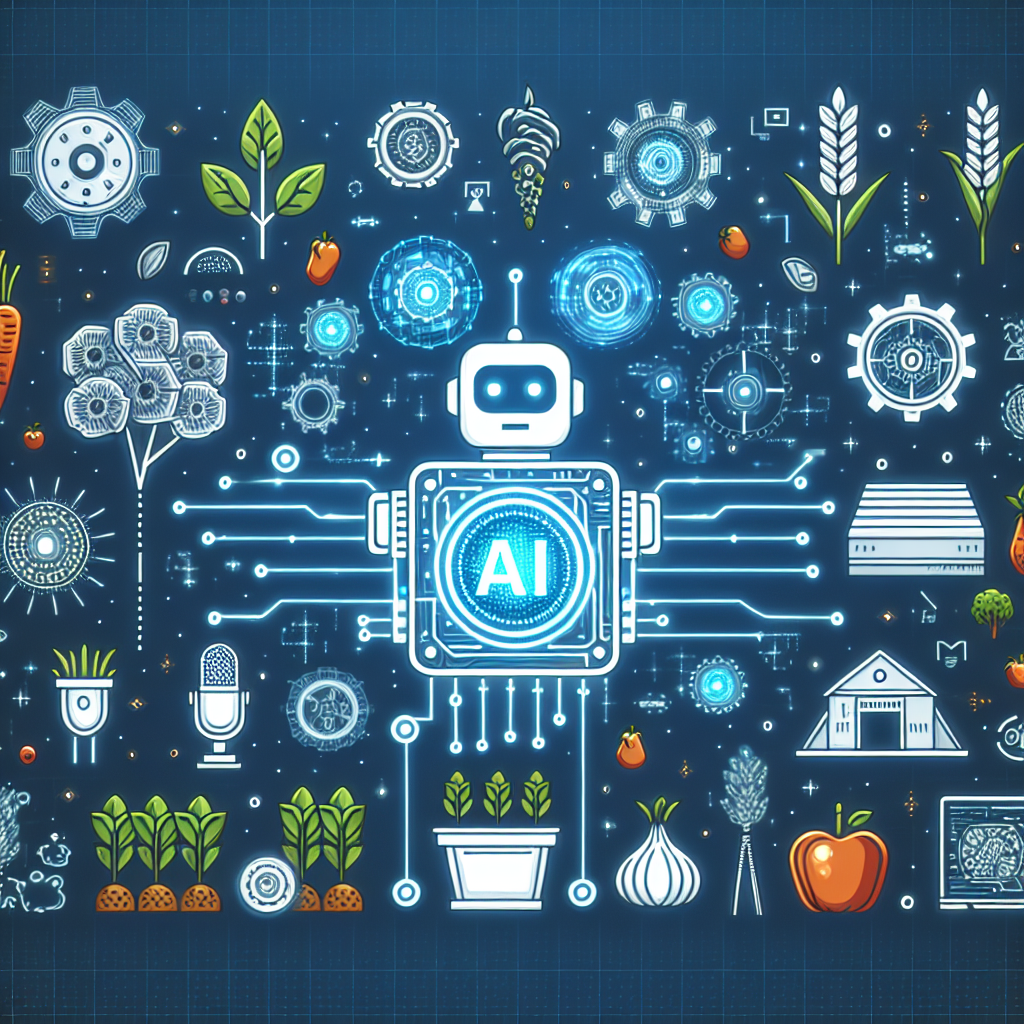In recent years, the agriculture industry has seen a significant shift towards adopting AI-powered solutions for food quality assurance. These technologies have revolutionized the way food is produced, processed, and distributed, leading to improved efficiency, accuracy, and safety in the food supply chain. From monitoring crop health to detecting contaminants in food products, AI-powered solutions have become indispensable tools for ensuring food quality and safety. In this article, we will explore the various AI-powered solutions being used in agriculture for food quality assurance and the benefits they bring to the industry.
One of the key areas where AI-powered solutions are making a significant impact is in crop monitoring and management. By using drones equipped with AI algorithms, farmers can now monitor the health of their crops in real-time, detecting issues such as pest infestations, diseases, and nutrient deficiencies before they become widespread. This proactive approach allows farmers to take timely action, minimizing crop losses and ensuring a higher quality yield.
AI-powered solutions are also being used to optimize irrigation practices, ensuring that crops receive the right amount of water at the right time. By analyzing data from sensors placed in the field, AI algorithms can predict crop water requirements and adjust irrigation schedules accordingly. This not only improves crop quality but also conserves water resources, making agriculture more sustainable in the long run.
In food processing and packaging, AI-powered solutions are being used to detect contaminants and defects in food products. By analyzing images of food products using machine learning algorithms, these technologies can identify foreign objects, such as metal fragments or plastic pieces, as well as defects like bruising or mold. This enables food manufacturers to remove contaminated products from the production line before they reach consumers, ensuring food safety and quality.
Another area where AI-powered solutions are making a difference is in food traceability and supply chain management. By using blockchain technology and AI algorithms, food producers can track the entire journey of a food product from farm to table. This transparency in the supply chain allows consumers to verify the authenticity and quality of the food they are purchasing, reducing the risk of food fraud and ensuring food safety.
Overall, AI-powered solutions are helping to improve food quality assurance in agriculture by providing farmers, food manufacturers, and consumers with valuable insights and tools to ensure the safety and quality of food products. By leveraging the power of AI, the agriculture industry is able to increase efficiency, reduce waste, and meet the growing demand for safe and sustainable food.
FAQs:
Q: What are some examples of AI-powered solutions for food quality assurance in agriculture?
A: Some examples of AI-powered solutions include drones for crop monitoring, machine learning algorithms for detecting contaminants in food products, and blockchain technology for food traceability.
Q: How do AI-powered solutions improve food quality assurance in agriculture?
A: AI-powered solutions improve food quality assurance by providing real-time monitoring of crops, detecting contaminants in food products, optimizing irrigation practices, and ensuring transparency in the supply chain.
Q: What are the benefits of using AI-powered solutions in agriculture for food quality assurance?
A: The benefits of using AI-powered solutions in agriculture include improved efficiency, accuracy, and safety in the food supply chain, reduced waste, increased sustainability, and enhanced consumer trust.
Q: Are AI-powered solutions cost-effective for farmers and food manufacturers?
A: While the initial investment in AI-powered solutions may be high, the long-term benefits, such as increased crop yields, reduced losses, and improved product quality, often outweigh the costs for farmers and food manufacturers.

